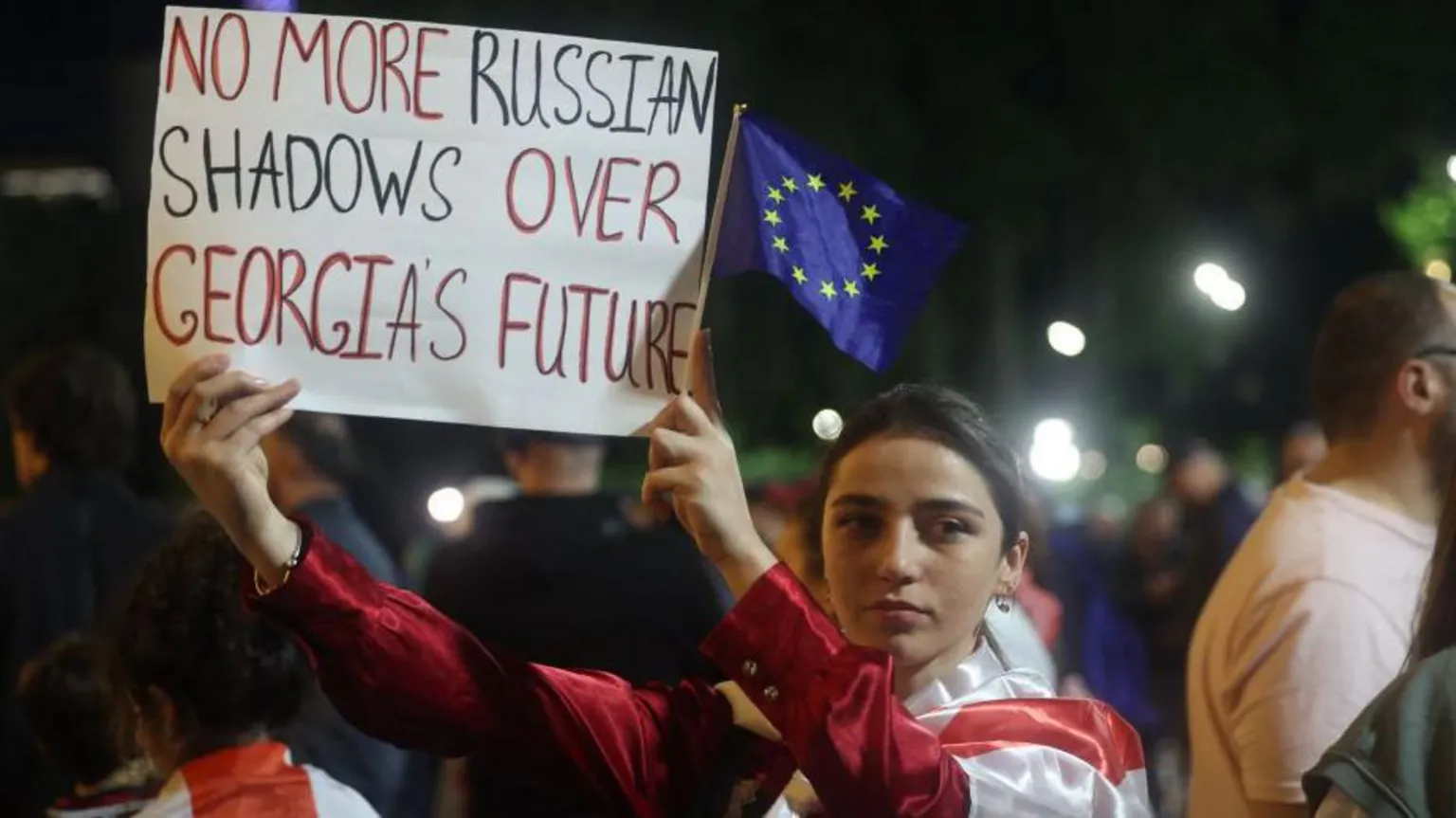On October 26, 2024, the Georgian people will head to the polls for parliamentary elections. This year’s elections are expected to be particularly tense. Since May, Georgian society has been experiencing significant unrest. The ruling Georgian Dream party, which has been in power since 2012, is running for re-election. Although the government has historically positioned itself as pro-European and sought EU membership, the recent full-scale Russian invasion of Ukraine has led to a noticeable shift in the Georgian parliament, dominated by the Georgian Dream party.
Despite the addition of "The way of Georgia is Europe" to the Georgian Constitution in 2017, the ruling party appears to have reversed its stance. This shift is largely attributed to the personal agenda of the country's main oligarch, Bidzina Ivanishvili. According to recent investigations by Bloomberg and Forbes, Ivanishvili’s fortune is estimated at $7.27 billion, while Georgia’s GDP is approximately $30 billion in 2024. His wealth was primarily accumulated in the years following the fall of the Soviet Union, and he still holds significant assets in Russia, including real estate in Moscow acquired between 2022 and 2024.
Following Russia’s invasion of Ukraine in 2022, accelerating the EU integration process for Ukraine, Moldova, and Georgia has become a top priority for the European Union. This process includes aligning these countries with European standards, particularly in combating corruption and addressing the influence of oligarchs.
The Georgian Dream party, owned by Ivanishvili, has significant control over the parliament. Members of parliament benefit from various perks, including scholarships for their children’s studies abroad and real estate. Transparency International Georgia highlights the fine line between power and corruption in the country.
European integration represents a loss of power for Ivanishvili and his associates, which partly explains the shift in his rhetoric from pro-European to pro-Russian. Recent years have seen a decline in democratic freedoms, with laws increasingly restricting freedoms. In spring 2024, the parliament passed a "Foreign Agent" law similar to Russia’s 2012 legislation. This law requires NGOs receiving over 20% of their funding from abroad to register as "Foreign Agents." In Russia this law became the main spearhead for the repression and the definition of the enemies of the state. As of today, all of the opposition is considered as Foreign Agents, and since June this year, the LGBT+ community is part of it as an “extremist and terrorist organization”. Similarly, in Georgia, the law has been used to target the LGBT+ community and opposition parties, with Moscow expressing support for Georgia’s stance against the " Western LGBT agenda ".
As anticipated by civil society, the Georgian government has used this law to further restrict freedoms. In August, the Georgian Dream party announced plans to ban opposition parties, claiming they are influenced by foreign forces.According to the party, “In reality, all of these are one political force – collective National Moment. They are linked to each other directly, which can be proven legally […] therefore the legal procedure or appeal [against them] would be adequately justified, and it will be proven that the collective National movement movement is serving criminal objectives. "
In this climate of paranoia and Russian-style tactics, the Georgian Dream party intensified fears on September 4 by warning of potential attacks from the opposition and accusing them of attempting to incriminate the government. Reports from the weekend of September 7-8 indicate that at least two opposition leaders and one campaign team member were targeted by unknown individuals.
The paranoia has escalated to the point where, during his recent public appearance, Ivanishvili was seen behind a glass barrier on stage and has ceased using his helicopter, moving only under heavy protection. This has heightened the pre-election tension.
Russian state media, such as RT, has alleged that "foreign forces" are planning a revolution in Georgia following the elections, purportedly backed by Western interests. This allegation was given by the Russian state denouncing the will of Washington of a “Tbilisi Maidan”. These claims have been dismissed by the US Department of State..
In July, the International Society for Fair Elections and Democracy (ISFED) and Transparency International Georgia (TI) reported " large-scale electoral fraud " over recent years.
Allegations include falsified voter rolls, with reports of “ghost” voters and deceased individuals still being recorded as voting for the government. Such stories are well-known within the country and raise serious concerns about the fairness of the elections. The new Foreign Agent Law allows the government to ban international election observers, particularly from Western NGOs, while Chinese and Russian observers are unaffected.
The underlying context are now well understood. Now we should try to understand the concept of Belarusification of Georgia. In recent months, it has become evident that the country is subtly aligning itself with Kremlin interests. The rhetoric used by the authorities is carefully crafted and disseminated, and citizens are witnessing daily violations of their rights. The political system is consolidating power, employing anti-Western policies, and preparing both the country and its people for potential electoral manipulation or fraud.
The fact that the main oligarch has assets in Russia also raises concerns about his links with the Kremlin, regardless of whether he is acting under direct pressure or not. This presents a risk for Georgia of being governed by a puppet of Moscow. It highlights how significant the pressure is and the risks of undemocratic power taking hold in the country.
Conspiracy theories are proliferating, fueling fear among an uneducated and aging electorate. Examples such as the assassination attempts on figures like Donald Trump or pro-Russian Prime Minister Robert Fico are being cited to suggest that the West is attempting to suppress dissenting voices. This fuels the paranoia of a Western plot against the Georgian government. These narratives reinforce fears of a Maidan-like scenario, which could lead to one of the following outcomes: 1) Civil war, 2) Conflict with Russia, given Russia's reported readiness to support the Georgian Dream party in the event of election issues, or claims by the GD that the opposition might provoke an attack on Russia within a week of taking office, and 3) Increased repression.
Following the repression witnessed during the spring of 2024, the Georgian government's handling of peaceful protests raises concerns about potential future responses if the elections do not go in their favor. Protests could erupt at any moment, as the people may refuse to recognize the election results. Such unrest could be provoked by the government, as well as by extreme opposition parties. The timing of these events will coincide with the American elections, which may overshadow developments in Georgia and limit Western intervention if repression escalates or if Russia deploys peacekeeping forces. The Western world may not have time to respond, allowing a puppet regime like Lukashenko’s in Belarus to maintain its hold on power.
If that situation occurs, the European Union would have to distance itself from the authorities in Tbilisi, abandoning the people. The situation could lead to a strategic stalemate.
Louis Sandro Zarandia

